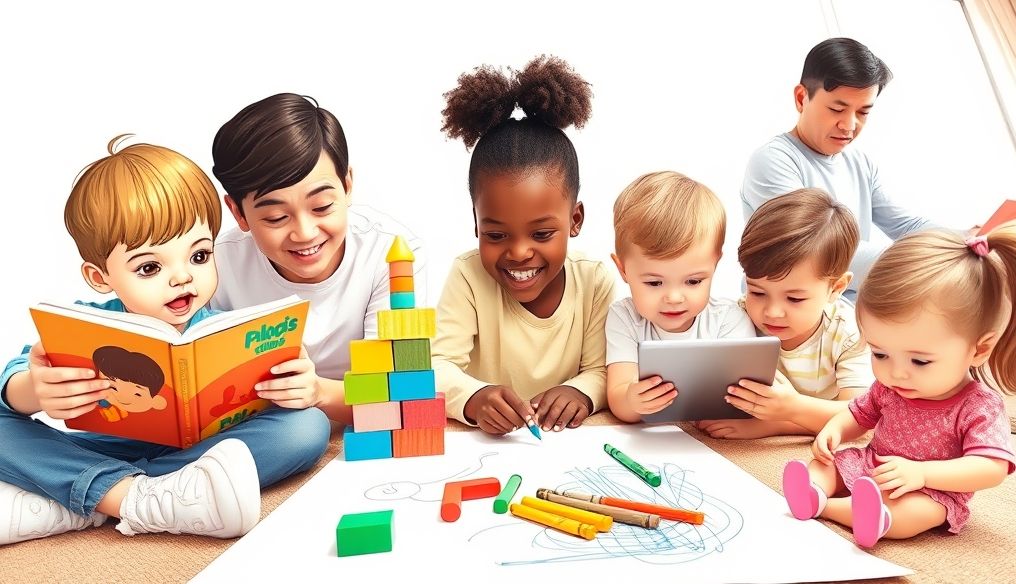Is a Daily Routine Important for Children and How Does It Affect Their Development?
A daily routine for children is not just a list of repetitive tasks; it's a solid foundation for building a strong and balanced personality. It provides a stable and organized structure to a child's life, contributing to their sense of security and psychological comfort. In this article, we will explore the importance of a daily routine for children and how it affects various aspects of their development.
1. What is a Daily Routine?
A daily routine is a set of activities that are repeated regularly at approximately the same time each day. This can include wake-up time, meal times, playtime, study time, bedtime, and other routine activities. A routine does not necessarily mean a strict timetable, but rather a general framework that helps the child understand what is expected of them and when.
2. The Importance of a Daily Routine for Children
A daily routine has many benefits for children, including:
2.1. Enhancing the Sense of Security and Stability
Children feel safe when they know what will happen next. A daily routine provides them with this sense of stability, which reduces anxiety and stress. When a child is aware of what is expected of them, they are more willing to cooperate and participate.
2.2. Improving Sleep
A regular bedtime routine helps regulate a child's biological clock, making them fall asleep faster and sleep more deeply. This, in turn, leads to improved mood and ability to concentrate during the day.
2.3. Developing Organizational Skills
A daily routine teaches children how to organize their time and activities. They begin to understand the importance of planning and adhering to schedules, which are valuable skills that will serve them in all aspects of their lives.
2.4. Promoting Independence
When children know what is expected of them, they become more capable of doing things on their own. For example, if they have a fixed routine for getting dressed and brushing their teeth, they will become more independent in these tasks.
2.5. Improving Behavior
A daily routine helps reduce negative behaviors such as tantrums and rebellion. When children know what is expected of them, they are less likely to misbehave.
3. How to Build a Successful Daily Routine for Your Child?
Building a successful daily routine requires some planning and flexibility. Here are some tips:
3.1. Start Slowly
Don't try to change everything at once. Start by adding some routine activities gradually, such as bedtime or meal times.
3.2. Be Consistent
Try to stick to the routine as much as possible, even on holidays. This will help your child understand that the routine is a natural part of their life.
3.3. Be Flexible
Don't expect the routine to be perfect all the time. Unexpected changes may occur, so be prepared to adapt to the circumstances.
3.4. Make the Routine Fun
Try to incorporate fun activities into the routine, such as playtime or reading. This will make the child more willing to cooperate.
3.5. Involve Your Child in Planning
Allow your child to participate in planning the routine. This will make them feel more responsible and committed.
4. Examples of Daily Routines for Children
Here are some examples of daily routines for children of different ages:
4.1. Daily Routine for Infants (0-12 months)
- Waking up and feeding
- Playtime and interaction
- Naps
- Diaper changes
- Bath time
- Feeding before bedtime
4.2. Daily Routine for Toddlers (1-3 years)
- Waking up and eating breakfast
- Free playtime
- Reading time
- Lunch
- Nap
- Outdoor playtime
- Dinner
- Bath time
- Bedtime
4.3. Daily Routine for Preschoolers (3-5 years)
- Waking up and eating breakfast
- Playtime or educational activities
- Snack time
- Outdoor playtime
- Lunch
- Nap (if needed)
- Creative activities time (drawing, coloring)
- Dinner
- Bath time
- Bedtime story
4.4. Daily Routine for School-Aged Children (6-12 years)
- Waking up and eating breakfast
- Going to school
- Returning from school and having a snack
- Doing homework
- Playtime or sports activities
- Dinner
- Relaxation or reading time
- Bedtime
5. Common Problems and How to Deal with Them
You may encounter some problems when trying to implement a daily routine, such as:
5.1. Child's Resistance
The child may resist the routine at first. Be patient and consistent, and try to make the routine as fun as possible.
5.2. Changing Circumstances
Circumstances may change unexpectedly, affecting the routine. Be flexible and prepared to adapt to new situations.
5.3. Boredom
The child may get bored with the routine after a while. Try adding some variety to the routine activities.
6. Daily Routine and Child's Mental Health
A daily routine has a positive impact on a child's mental health. It helps reduce anxiety and stress, and promotes a sense of security and stability. It also helps develop social and emotional skills, such as the ability to adapt and cooperate.
7. Daily Routine and Academic Achievement
A daily routine can improve a child's academic achievement. When a child is organized and has a specific time for studying, they are more able to concentrate and learn. The routine also helps develop time management skills, which are essential for academic success.
8. Daily Routine and Healthy Nutrition
A daily routine helps promote healthy nutrition for the child. When there is a specific time for meals, the child is more likely to eat healthy and balanced meals. The routine also helps avoid unhealthy snacking between main meals.
9. Daily Routine and Physical Activity
A daily routine can encourage the child to engage in regular physical activity. When there is a specific time for playing outdoors or exercising, the child is more likely to maintain their physical fitness and health.
10. Conclusion
A daily routine is a powerful tool that can help children grow and develop in a healthy and balanced way. It provides them with a sense of security and stability, and promotes their organizational, social, and emotional skills. By building a successful daily routine, you can help your child reach their full potential.




